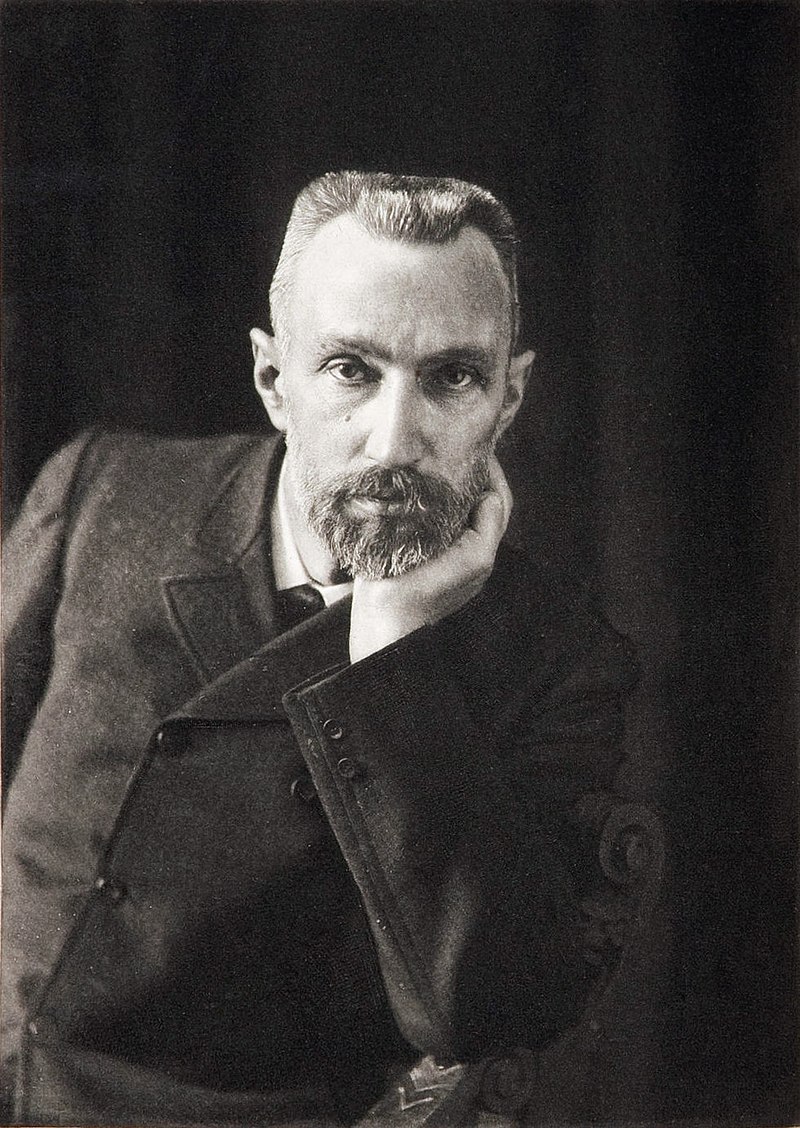
Pierre Curie
Pierre Curie was a French physicist renowned for his pioneering research in radioactivity, which he conducted alongside his wife, Marie Curie. They discovered several new radioactive elements, including polonium and radium, and contributed to the understanding of the nature of radioactivity as an atomic property. Pierre Curie's work earned him the Nobel Prize in Physics in 1903, a recognition he shared with Henri Becquerel and Marie Curie, marking a significant milestone in the study of atomic physics.
Born on May 15, 1859 (166 years old)
Global Media Ratings
Countries Mentioned
No country-level mention data available.
Interactive World Map
Each country's color is based on "Mentions" from the table above.
Recent Mentions
 Romania:
Pierre Curie announced the isolation of a new chemical element, radium, along with Marie Curie.
8
Romania:
Pierre Curie announced the isolation of a new chemical element, radium, along with Marie Curie.
8
 Ecuador:
Pierre Curie received the Nobel Prize in Physics for his studies on radioactivity.
9
Ecuador:
Pierre Curie received the Nobel Prize in Physics for his studies on radioactivity.
9
 Russia:
Pierre Curie shared the Nobel Prize in Physics in 1903 with his wife Marie Curie and Henri Becquerel.
9
Russia:
Pierre Curie shared the Nobel Prize in Physics in 1903 with his wife Marie Curie and Henri Becquerel.
9
 Latvia:
Pierre Curie shared the Nobel Prize in Physics with his wife, Marie Curie, in 1903.
9
Latvia:
Pierre Curie shared the Nobel Prize in Physics with his wife, Marie Curie, in 1903.
9
 United States:
Pierre Curie was a physicist known for his research in radioactivity, which influenced modern science.
7
United States:
Pierre Curie was a physicist known for his research in radioactivity, which influenced modern science.
7
 Liechtenstein:
Pierre Curie is mentioned as the husband of Marie Curie who died in a carriage accident.
7
Liechtenstein:
Pierre Curie is mentioned as the husband of Marie Curie who died in a carriage accident.
7
 Switzerland:
Pierre Curie was a physicist who collaborated with his wife Marie Curie in the discovery of radioactivity.
9
Switzerland:
Pierre Curie was a physicist who collaborated with his wife Marie Curie in the discovery of radioactivity.
9
 Dominican Republic:
Pierre Curie was a French scientist and the husband of Marie Curie, who worked alongside her in the field of radioactivity.
9
Dominican Republic:
Pierre Curie was a French scientist and the husband of Marie Curie, who worked alongside her in the field of radioactivity.
9
 Bolivia:
Pierre Curie was a French scientist who collaborated with Marie Curie in the discovery of radium and polonium.
9
Bolivia:
Pierre Curie was a French scientist who collaborated with Marie Curie in the discovery of radium and polonium.
9
 Panama:
Pierre Curie was a French scientist who collaborated with Marie Curie in the discovery of radium and polonium.
9
Panama:
Pierre Curie was a French scientist who collaborated with Marie Curie in the discovery of radium and polonium.
9
